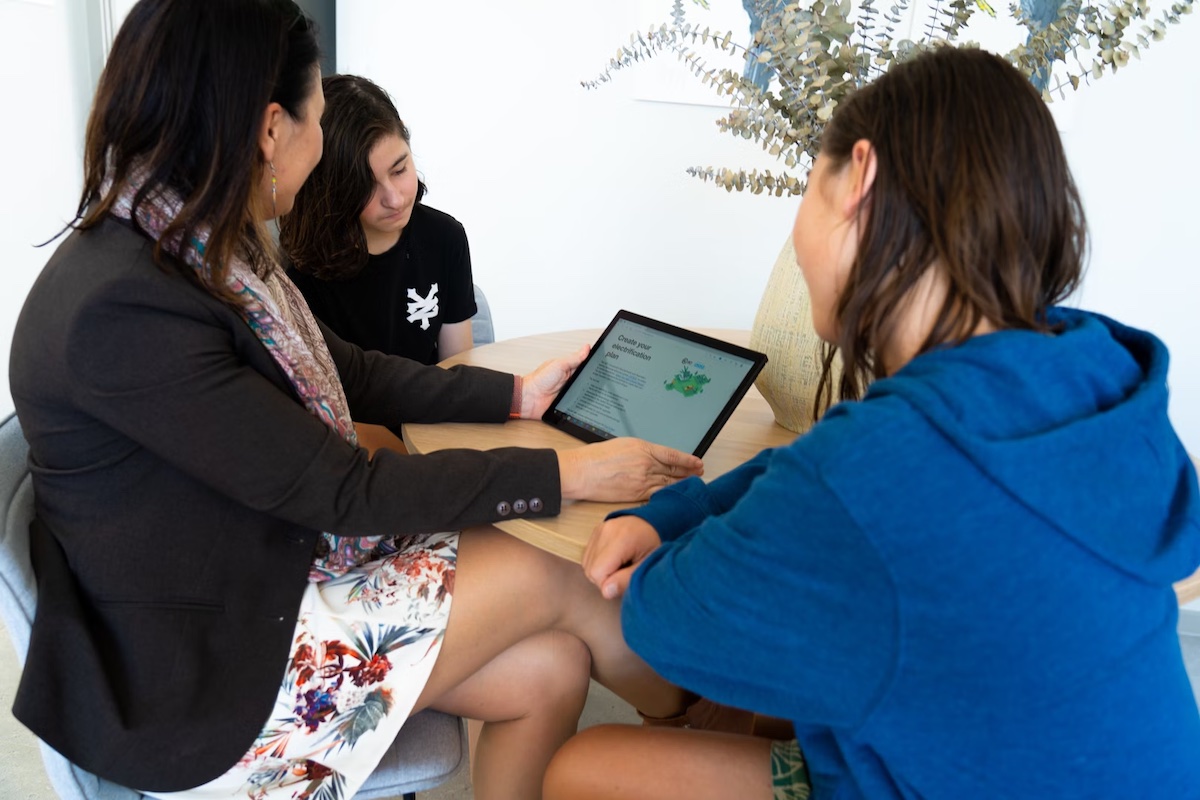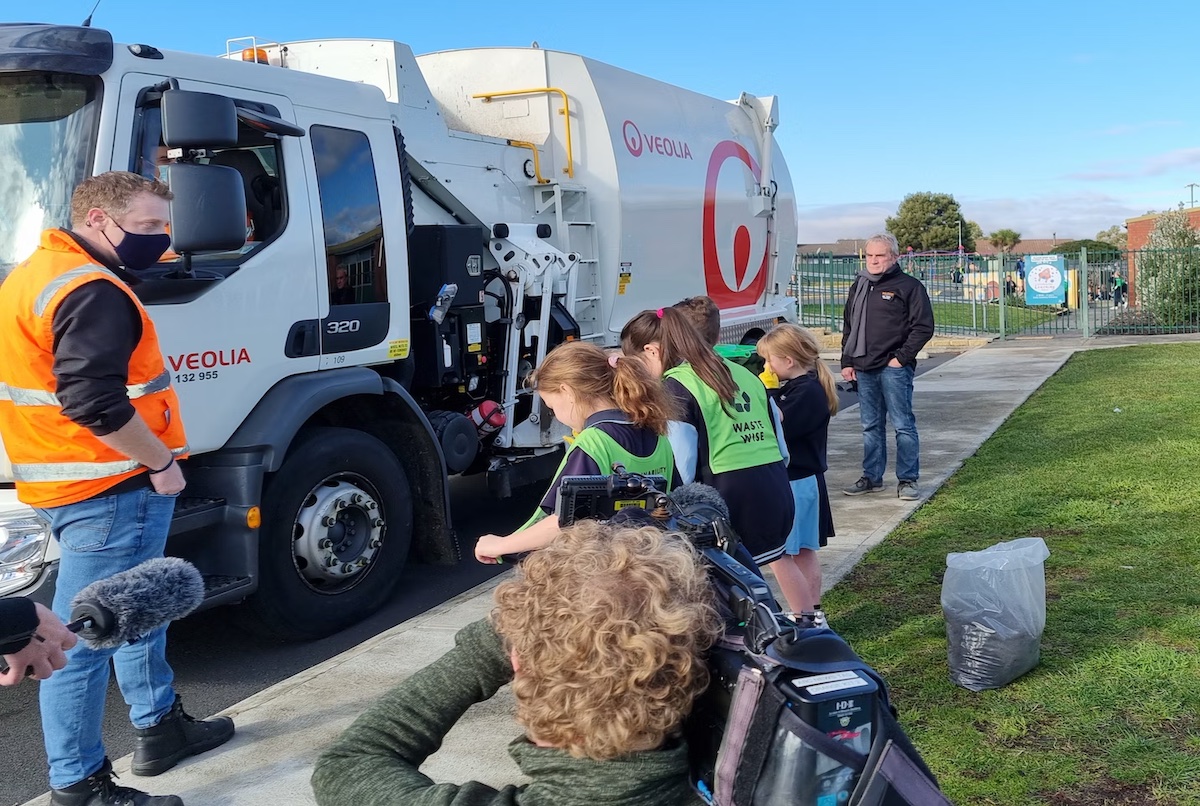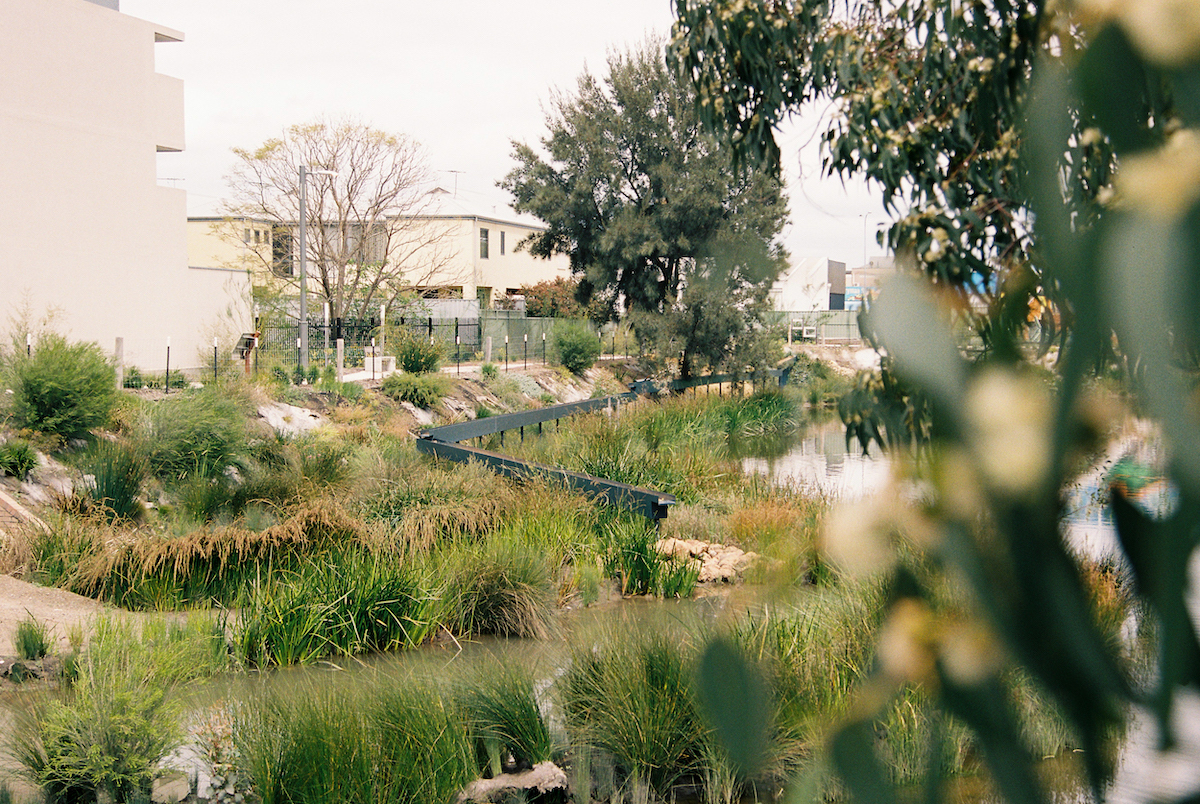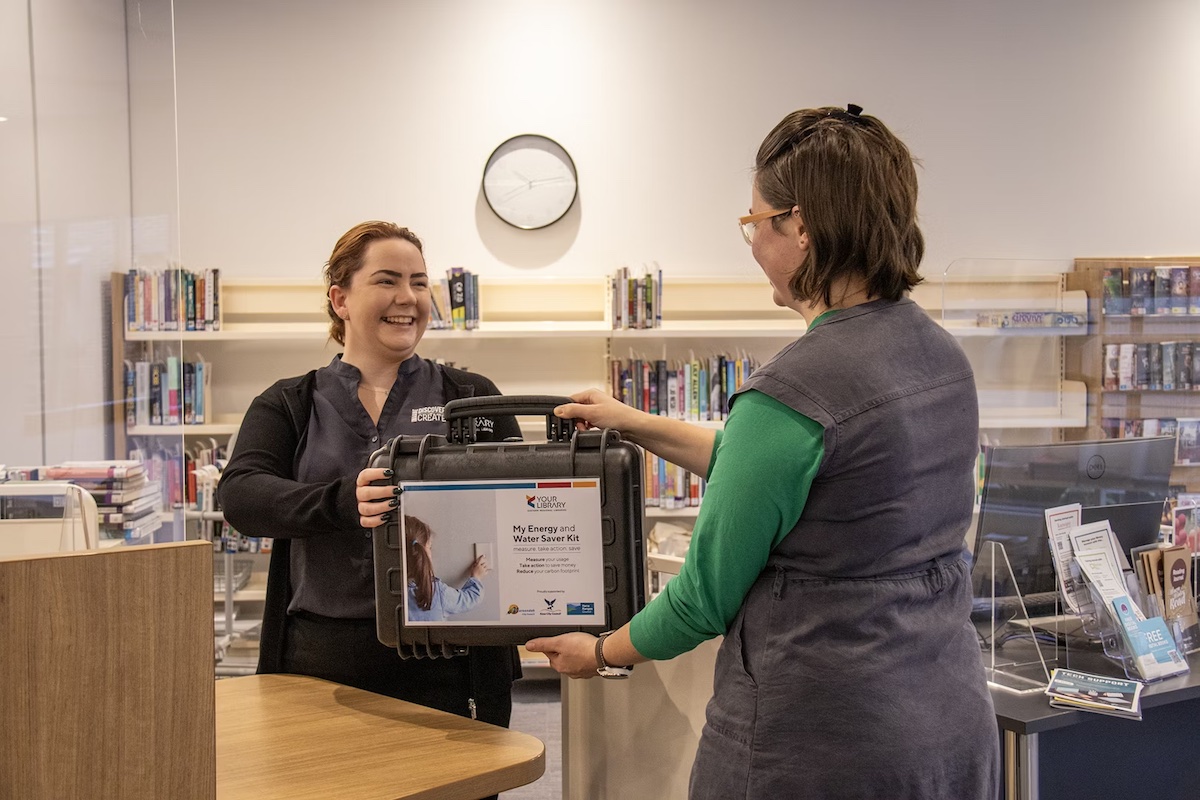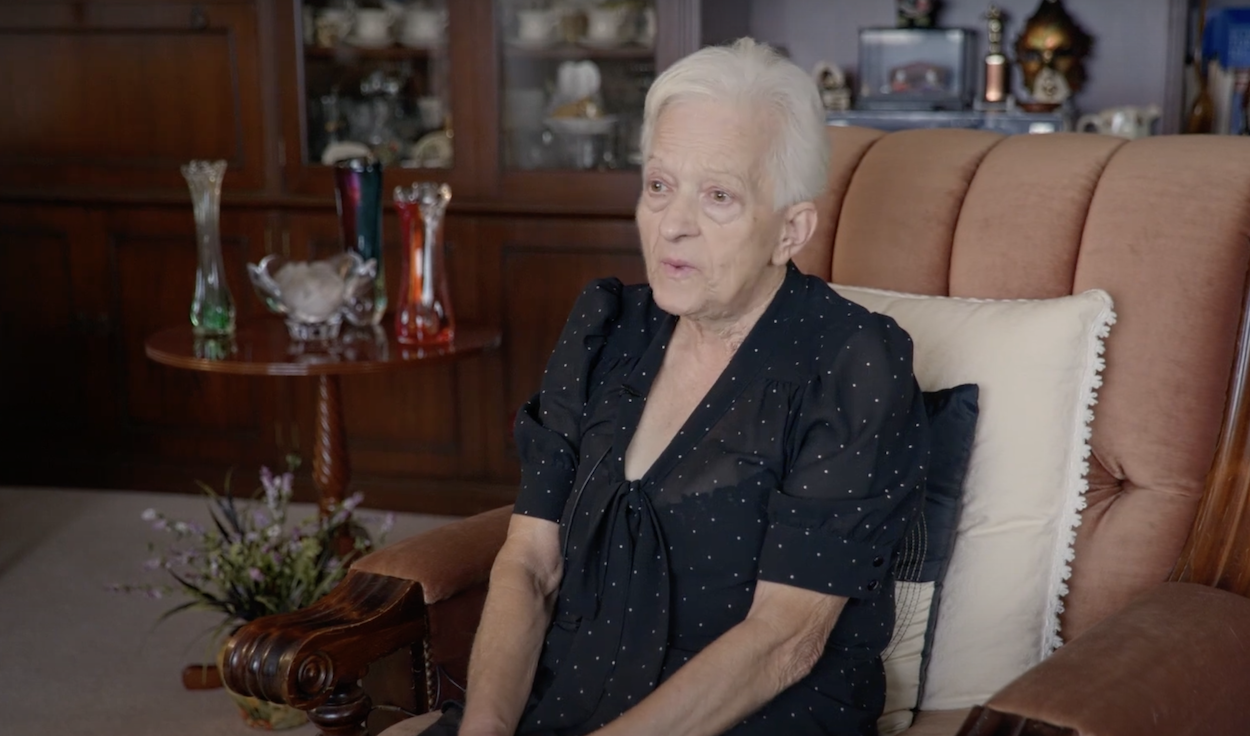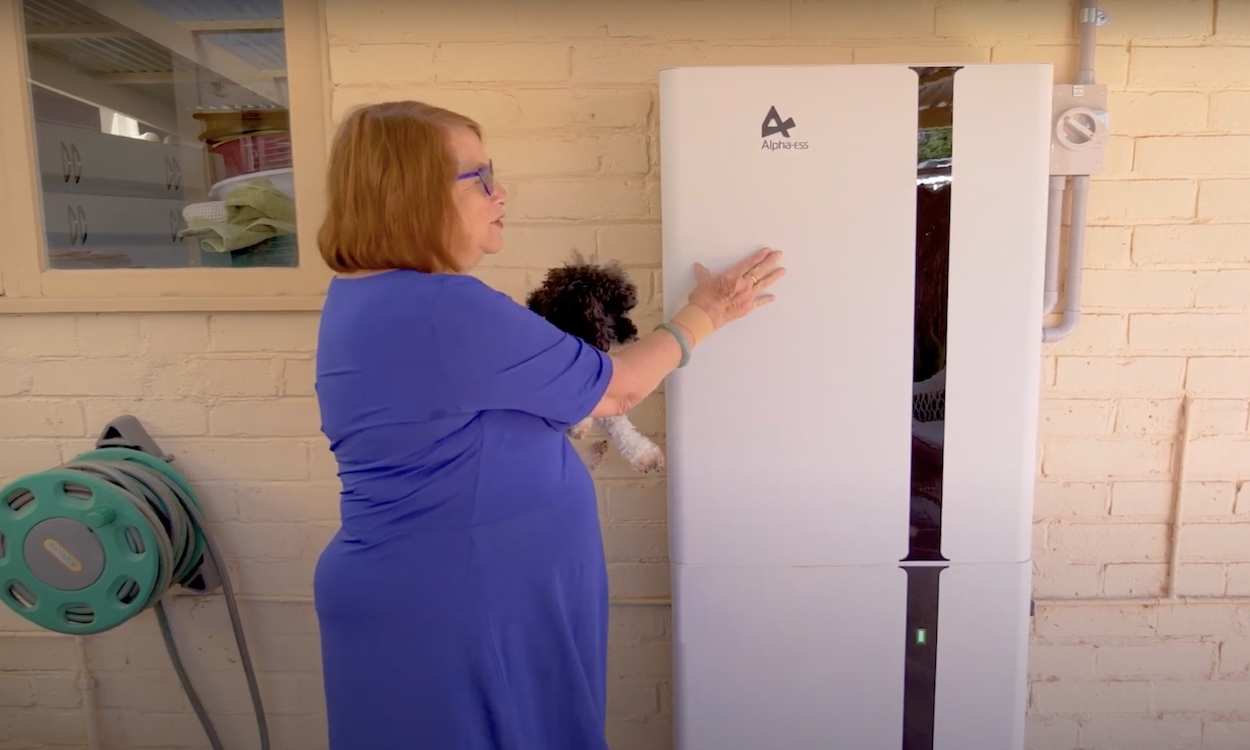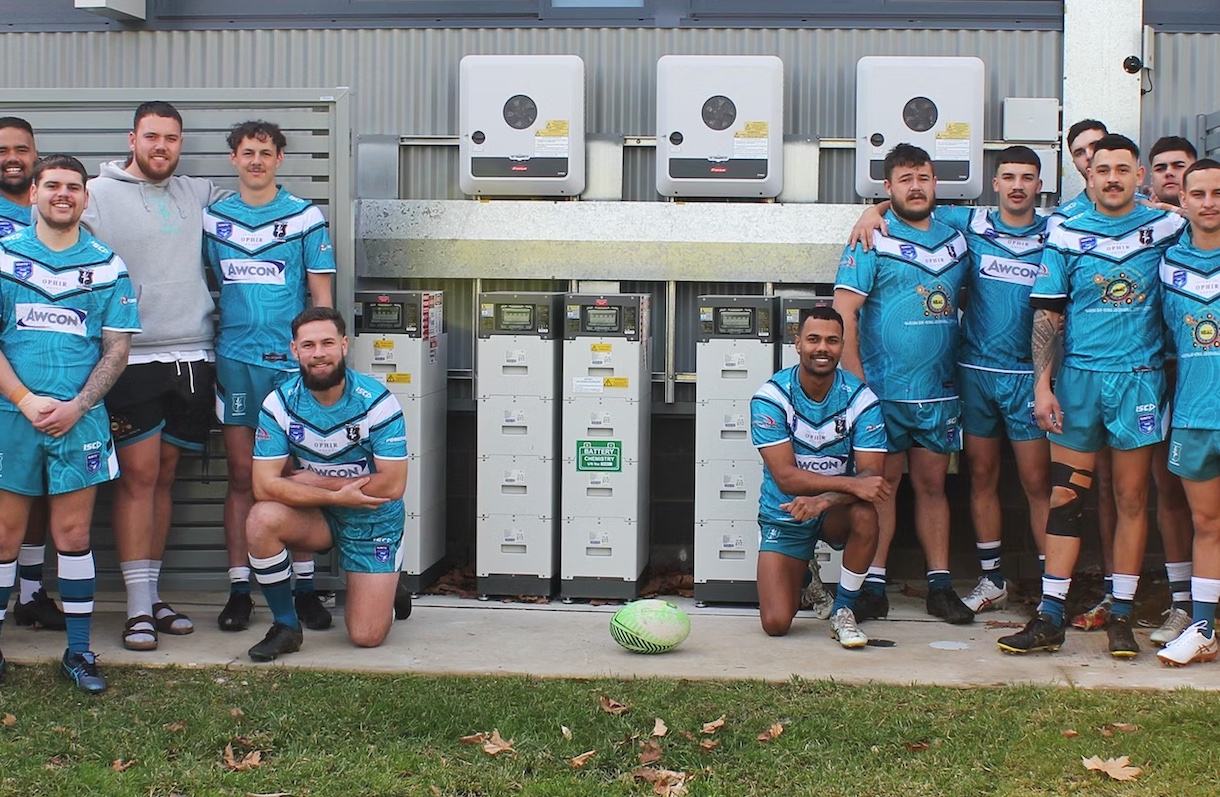Which town or city in Australia has got the best and brightest climate project going? We need you to help us decide!
The Cities Power Partnership Climate Awards draw entries from our member councils all over the country vying for top honor in categories like Innovation, Renewable Energy, Collaboration, Energy Efficiency and Sustainable Transport.
This year, we want to get our awesome community of supporters involved in the awards, so we’re including the Community Choice Award, where you have a say in which council project should be recognised.
ACT Government
First household electrification digital experience
To help transition its community off gas, the ACT created an innovative personalised digital tool, Make Your Next Choice Electric. Users enter their household circumstances and are provided a highly customised transition plan, including: CHOICE recommended electric appliances across different price categories; estimated yearly power bill savings; lifetime greenhouse gas emissions reduction; and referrals to government programs, such as a zero-interest loans, or rebates for eligible concession card holders.
In its first 3 months, the platform helped over 5,000 households create their own personalised electrification plan, identifying 9,578 gas appliances needing to transition. The tool is a first-of-its kind innovative solution to support households better understand the cost savings and benefits of electrifying their homes.
Brighton Council, TAS
School wastewise program and climate action program
Brighton Council’s sustainability program at local schools is helping divert food waste from landfill while educating children. The program, in operation for 1.5 years, developed local sustainability champions to help lead behaviour change at the schools and support the free Food Organics and Garden Organics collection service. Council officers regularly visit the participating schools and provide support, fun activities like Waste to Art competitions and prizes to incentive program participation.
In its first year, the program collected over 1,300 tonnes of organics matter and turned it into compost. The program is increasing the desirability of Brighton as an enjoyable place to work and play, reducing greenhouse gas emissions, empowering the next generation and raises awareness on key issues such as climate change and waste management.
City of Canning, WA
Wharf Street Basin
The Wharf Street Basin Next Generation Community Park was previously a closed-off stormwater basin, surrounded by a high security fence for 60 years to intentionally restrict community access. It was prone to poor amenity including rubbish and litter, as well as poor water quality. The City of Canning set out to unlock the basin’s potential and transform it into a multi-functional public space that embraces liveability, sustainability and productivity.
Council removed the fence, addressed hydrological functions, installed renewable energy, improved water quality, enabled habitat creation and enhanced amenities. Innovative technologies like an Augmented Reality app were used to educate the community about water quality and biodiversity.
Canning’s efforts transformed the basin into a vibrant public space that serves a social hub, promotes community engagement, enhances urban microclimates and overall sustainability.
Knox, Maroondah, and Yarra Ranges, VIC
My Energy and Water Saver Kits
Following community requests for support in assessing and improving home energy performance and lowering their energy bills, three Victorian Councils and the Eastern Regional Libraries group partnered to develop My Energy and Water Saver kits.
The easy-to-use kits, that can be borrowed from libraries across the region, come with a step by step guide to help check for water leaks, inefficient fixtures, high energy use items, costly energy consumption behaviours, and building design flaws such as gaps. With this information, residents are able to take action, like increasing insulation or altering fridge temperatures, to improve energy and water efficiency around the home, and benefit from cost savings on bills. The participation of each member Council’s libraries ensured that all residents in library catchments could access the kits.
Since launching in January 2022, the kits have been hugely popular with waiting list times of 14 months! This program is a stellar example of how working together can deliver big climate wins in the community.
Merri-bek City Council, VIC
Solar Thermal Program
Merri-bek City Council is committed to prioritising climate justice as part of its response to climate change. In late 2020, they launched the Solar and Thermal Subsidy Program, which assists low-income households in adopting solar panels or improving thermal insulation. The program is a “one-stop-shop” that supports households through the whole process, including carefully assessing their home for suitability, gaining access to state government rebates, as well as a financial subsidy provided by Council to cover any out of pocket expenses.
The program has achieved significant results. Combined, all 202 participants are saving $145,000 annually, and across the lifetime of the activities $1,750,000 will be delivered back to participants through avoided energy bill costs. The program’s success is driven by council’s community engagement. Unlike broad-based initiatives, this program specifically targets often under-represented cohorts, with it only available to low-income households including a focus on CALD community members. This targeted approach reduces emissions, lowers bills, and improves the homes of those most affected by climate change.
City of Mitcham, SA
Community Renewables Program
The City of Mitcham launched a Community Renewables Program aimed at reducing carbon emissions, promoting renewable energy adoption, and easing cost of living pressures for its community. The program consisted of several phases, including residential and commercial bulk buys for solar and batteries, leading to the creation of a Mitcham Virtual Power Plant (VPP) and a community energy plan.
The proposed Mitcham Energy Plan, powered by the VPP, aims to offer renewable energy to 762 residents and businesses across the city, including renters. The program will cut an estimated 3,193 tons of CO2 annually, equivalent to energy use in 402 homes for a year. It’s also reducing electricity costs for residents and businesses, enhancing comfort, and boosting property values. The program is an Australian first and is helping the community shift to a low-carbon, decentralised energy system, showcasing the City of Mitcham’s leadership in community-led renewable energy.
Orange City Council, NSW
Net Zero Sports Precinct
Wade Park is a high traffic premier sports precinct in Orange NSW with sports like cricket and rugby occurring year round. The electricity required, particularly at night, results in a significant amount of emission generation. But thanks to the hard work of Orange City Council, Wade Park is now one of the first net zero locations in the region. The community hub was fitted with a solar and battery energy storage system that can power the site day or night. To further reduce energy load, its sports field lights were upgraded to energy efficient LEDs and electric hot water heaters were installed.
Wade Park is expected to save 42 tonnes of carbon dioxide emissions each year, which is equivalent to taking 10 cars off the road each year. This project demonstrates to its community that a zero-emissions future is possible.
The winner will be announced on September 7 at the Cities Power Partnership Climate Summit for Local Government.
